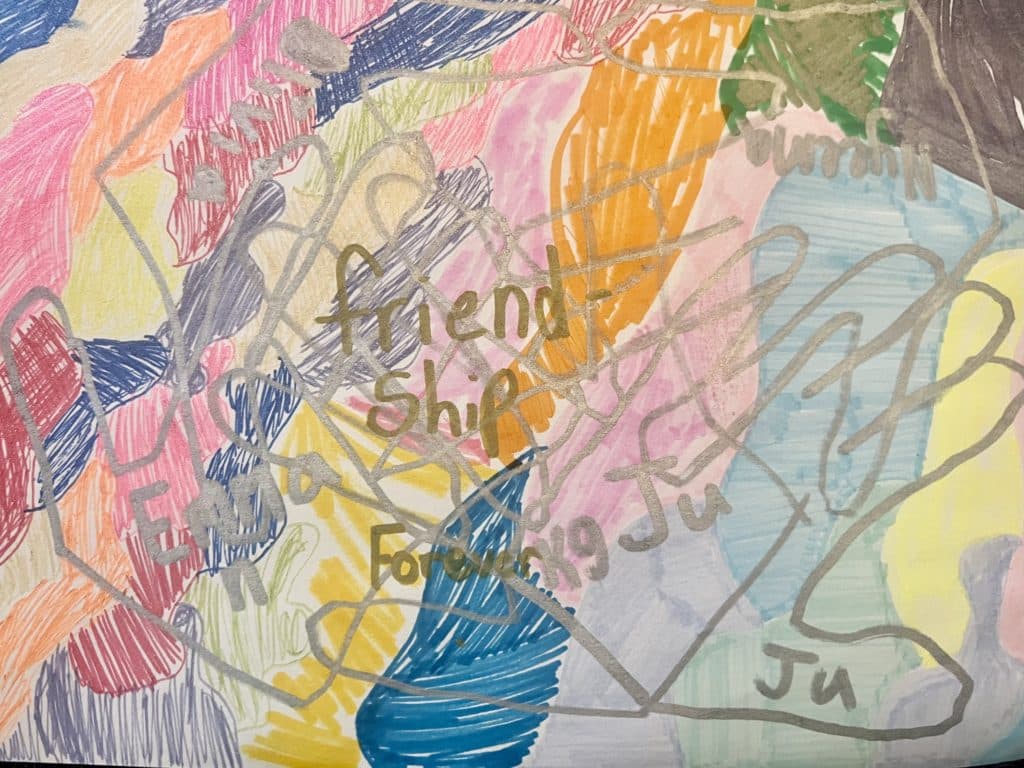The HIPS of Friendship
Over the last year, I’ve dealt with a shift in some friendships. Coincidentally, my daughter, who is only in fourth grade, has as well. Surprised that kids these young are already dealing with friendship “drama” (especially girls), I did some research on the evolution of friendships, wondering how long the average friendship lasts.
I made an educated guess that it’s 7 years. Why 7? I considered that marriages go through a 7 year itch – although some believe this to be a myth, my husband and I definitely felt the itch but overcame it… phew! Astrologists believe that a shift in the planets transform our lives every 7 years. Even biologists believe that human cells replace themselves every 7 years.
Well, I hit the nail on the head! Research shows that friendships last an average of 7 years! Surprisingly, around this time, you lose about half of your friends and replace them with new ones.
Because of life circumstances, you may not see these individuals or call on them like you used to. Sometimes a change in job/career, marital status, political views or simply individual growth, may turn these friends into acquaintances or you may even lose touch with them.
As a sensitive person and someone who despises change, I have worked on strengthening my social sphere so that challenges in friendships don’t affect my mental sphere. It’s been a constant work in progress for me.
4th Grade Friendships
Growing up, I don’t recall a shift in friendships until middle school. Everything seems to be happening sooner for kids as we are already discussing the evolution of friendships that continues deep into adulthood.
Earlier in the school year, my daughter and her best friend began to hang out with different groups. Naturally, this was a good progression for both girls to expand their social circles. “Girl drama” ensued however resulting in distance between the two.
When your child questions why her best friend isn’t her “best friend” anymore, what do you say?
I sought advice from other girl moms. I also considered my husbands varying thoughts on friendship. Through these conversations and my own experiences, I created an acronym so my daughter can understand the fundamentals of friendship. Unknowingly, creating the acronym also gave me clarity.
HIPS: Honesty – Individual Growth – Positivity – Seasonal
1. Are You Honest? Can you be honest with your friends and do they reciprocate honesty with you? Are you able to be vulnerable with them without judgement? You want friends who you can share your life with and vice versa.
Honesty also means speaking up about your needs and expectations in the friendship and reciprocating those needs – unless of course the needs are unreasonable or toxic.
2. Individual Growth. We are continuously transforming as individuals and sometimes this causes us to grow apart from friends. But as friends, we need to understand each other’s growth (or lack thereof) and support each other. If there is no effort from the other party to appreciate this, then this may be an unreliable friendship.
3. Focus on the Positives. Focus on all the people around you that do support you, listen and talk to you, and make an effort with you.
4. Season of Friends. I learned from someone I know that “all of your friends have seasons”. “Some are in season and some are out of season but each has had a great impact on your life during that time.”
Although not all of the above pertained to my daughter’s situation, we took time to talk to her about the impact of friendships as we know middle and high school relationships (which are right around the corner) can become even more tangled and dramatic.
The Student Becomes The Teacher
Over the last few months, my daughter has embraced having her other friends and is still cool with her old BFF. It’s been a win-win situation for her.
In fact, yesterday, one of her friends gathered several others to draw this picture (see below) for her as a “thank you” for getting their group together. When we asked her how it made her feel, she said “It made me feel really good. Like they really care about me.”

Seeing how she was handling her situation, I wondered what advice she would have for me.
I told her that lately I felt left out of a three person friend group. Without going into too many details, I told her that not only do the friends not reach out as much but they make plans without me. I told her I reached out to them and asked if I had upset them in any way but they said I hadn’t. They said they love and miss me! Then what was it? Were we growing in different directions? I told her that I was feeling a little sad about the situation because I felt like they weren’t making an effort with me anymore.
She said “Mommy, you shouldn’t be sad. Look at all the friends that love you and want to hang out with you. Focus on the ones that make an effort with you. You can still be their friend but you need to focus on the people that do check on you and ask you how you are doing.”
Gosh darn it, the student became the teacher! Was her advice innate or should I be patting myself on the back? Ha!
I valued her advice and the reminder. She sure made me feel better by shifting my focus on the positive – the “P” in HIPS.
The Reoccurring Lesson
I obviously don’t want to lose friends that I’ve invested time, energy and love into but sometimes it’s out of our hands. It is a natural progression in life and perfectly normal.
Learning how to manage friendship turnover can help us keep our social sphere in balance and healthy.
I’ve been blessed with beautiful friends in my life and I’ve also lost friends that I cared about. I know our children will go through the same in life. Hopefully, however, they will have many that leave a positive mark during their season.
With these lessons that happen on average of every 7 years, we can prepare our children for the HIPS of friendship – Honesty, Individual Growth, Positivity and Seasonal – and be sure that they remind us the HIPS in 7 years when we go through another cycle.

Comments are closed